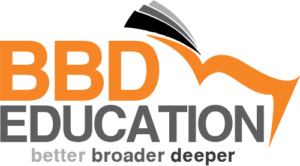There is no issue that consumes more of my thought and time. As we drive for better and better performance in our region, how should the pedagogy of the Middle East change?
Of course, it’s an arrogant leap to believe that all the schools and teachers in the East want, or can benefit from, the classroom approaches that have prospered in the UK, USA, Europe, Australia and New Zealand.
But so many western educators hold that belief. And many educators in the emerging economies, including those of the Middle East, hold that belief too.
Perhaps it is the influence of Ken Robinson, with his beguiling TED talks. He is a very important thinker and nobody can question the effort he has put in to promoting and celebrating the role of the Arts in education. But do his messages apply in the Middle East, at this time?
Perhaps it is the influence of all those school inspectors who, fresh from the ‘plane, carry their western rubric for ‘best practice’ into unfamiliar classrooms. They are trying very hard to make schools better, I can see that, but have we really examined whether we are preparing the schools and teachers they visit for the difficulty and discomfort of the changes that the inspectors promote?
The truth is that, week in and week out, I experience teachers in the Middle East wrestling with the challenge of adopting western approaches while not necessarily making much progress.
And I don’t think we are being honest enough about how tough the journey is. Nor clear enough about the detailed changes that are required to make most of the western approaches work. Clarity is actually the thing that bothers me most.
In the worst of situations, I see western educators – full of certainty – peddling practices that have more to do with fashion than science. Let me take an example: the flipped classroom. I am all for using flipped classroom approaches because I can see the extra variety it might offer in some circumstances, but do we have any science to show it works? In the West or the East? No. Have we classified and defined the method carefully? No. Have we made sure that newcomers to the method have a good environment in which to experiment with it, and to adapt as they go?
And how careful are we being to point to those situations where flipped approaches might aid learning and those situations where it most likely won’t?
The BIG decision to adopt varied classroom practices – something more than the textbook, the teacher, the talk and the test – brings with it the need to choose the right approach to suit the context, audience and purpose. And it brings with it, the need for skilled execution. Allied to some science that is helping us understand what works.
Those things are HARD.
I visit teachers – friends and colleagues – who have been told to give up the textbook, the talk and the test. For many of them, those three elements were all the certainty they had. People knew what to do, what was coming, and what ‘good’ should look like. You could become a better teacher by working hard at the sequence of work, the explanations you gave, the marking and feedback you provided, and the support you followed through with.
Now, many teachers are being told to adopt western or ‘modern’ pedagogies while too few resources are being applied to help them. We are not putting people – or systems – alongside those who care – to listen to their questions (what exactly do I do?) and to help them to cement the skills (in this situation, what might work better?).
Please don’t tell me that external courses can fill the gap. They do not. They never will. I am not even sure that lists of teaching standards yet offer a lot because, very often, they inject a new level of accountability across a huge range of issues. All at once.
What has to be gained by teachers in the form of new skills and insights involves nuanced and applied learning. It takes time. It takes leadership and support. We need to show teachers what might work while we sit and apply ourselves alongside them, day-to-day. Coaching as well as guiding.
It also helps where the coaches have the right subject strength. Improving a mathematics class with more group work is vastly different from improving a history class with more group work.
Personally, I do not find that the case has been proven yet, that western pedagogies will help Middle Eastern schools and teachers improve. In my heart and by instinct, I sincerely believe that they should. But only if we offer greater clarity and support.
I predict, the schools and the school chains that will do best will be the ones that focus on clarity and support.
In my early days as a teacher, in the 1970s, I watched as teachers in the West were encouraged to adopt new approaches that included ‘child-centred’ learning that was poorly defined, multi-disciplinary study that was poorly conceived, and highly active classrooms where there was never any chance that the teacher could get to grips with the learning opportunities that each child was generating.
We made more progress with our methods when we slowed some of the changes down, set some ideas aside as un-proven, focused on student outcomes better, checked impact, provided more guidance and gave teachers good answers to their next question, like what can I do now?
Let’s stop hectoring the teacher in the Middle East. Let’s stop the generalised exhortations. Let’s get alongside them and test ourselves – are we good enough to give them the clarity, ownership and support that they really need?
Ralph Tabberer

